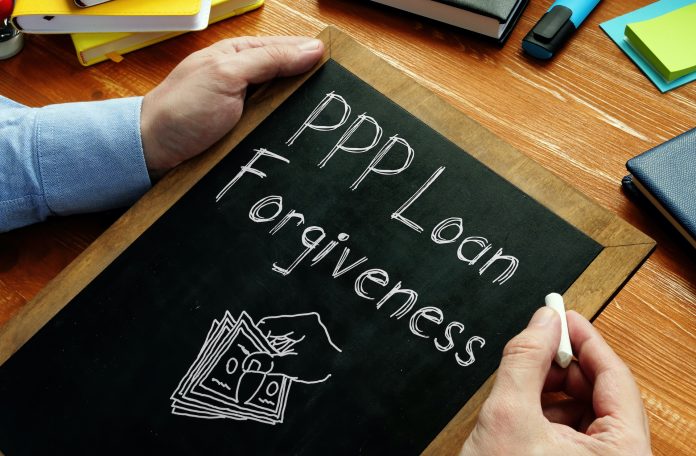Key Highlights
- Despite lenders telling/writing PPP borrowers to “apply for forgiveness right away,” tax pros say, “there is no harm in waiting.”
- There remains too much uncertainty about PPP loan program
- Uncertainty swirls around tax deductibility
When the COVID outbreak occurred in March, Congress passed the CARES Act to help provide financial relief aid to people and businesses negatively affected by the pandemic. One of the programs created under the CARES Act was the Paycheck Protection Program (PPP). Businesses in need could apply for forgivable loans to help get them through bad times and more than 5 million PPP loans were approved between April 3 and August 8. Those +5 million forgivable loans accounted for some $525B in relief assistance.
As of October, the Small Business Administration (SBA) and US Treasury Department signaled that PPP borrowers who had received loans of $50,000 or less could now begin applying for forgiveness of their PPP loans by completing a new short and easy to complete Form 3508S.
(PPP borrowers are eligible for loan forgiveness if 60% of their PPP loan was used to meet payroll expenses. Businesses that used less than 60% of their loans to cover payroll costs may be eligible for partial forgiveness. Consult with your own tax professional!)
Banks and other lenders that served as conduits of the PPP loans are writing/telling their PPP borrowers to apply for loan forgiveness now. (Obviously the banks and lenders want to get these PPP loans off their books as soon as possible just like borrowers want to have their loans forgiven as soon as possible.)
Here’s an example of how some lenders are letting their PPP borrowers know to apply for forgiveness. The Florida Credit Union wrote to a PPP borrower saying, “Your loan obligation is coming due with your first payment due 11/15/2020. Please note, this loan is not a grant. As a reminder you need to apply for loan forgiveness using the link below.” (The “link below” takes the borrower to Form 3508S.)
Here’s the catch…According to Adam Markowitz, enrolled agent and vice president at Howard L. Markowitz in Florida, “Under no circumstance is that (statement about the first loan payment being due 11/15/2020) true…There is no harm in waiting.”
Why is there no harm in waiting to apply for PPP forgiveness? The issue of tax deductibility remains up in the air. Lawmakers who wrote this relief package, both Republicans and Democrats, intended to write a bill that would allow small businesses to deduct covered costs. Without deductibility, an entrepreneur’s taxable income would appear higher without these write-offs. This could also impact their eligibility for some tax credits when filing their 2020 returns,
(According to the IRS, forgiveness of the PPP loan is tax-free but, at the time of this writing, borrowers will not be able to claim tax deductions for the business expenses covered by the forgiven loan amounts.)
Bottom line: Certified financial planners are telling their clients who received large PPP loans and have large deductions to “hold off” in applying for PPP forgiveness until Congress gets its act together and makes all of this more certain.”
Tim and Julie Harris Real Estate is NOT a financial planner not a tax specialist. Consult with your own tax/financial specialist about when to apply for PPP forgiveness.
Thanks to CNBC.

























